What are the Signs of ADHD in Children?
When my son was young, I often wondered what were the signs of ADHD in children.
Do you think your child may have ADD/ADHD?
Do you see behaviors that make you question if there isn’t something bigger going on with your child?
Be sure to read more of our informative parenting posts about ADHD!
This post contains affiliate links.
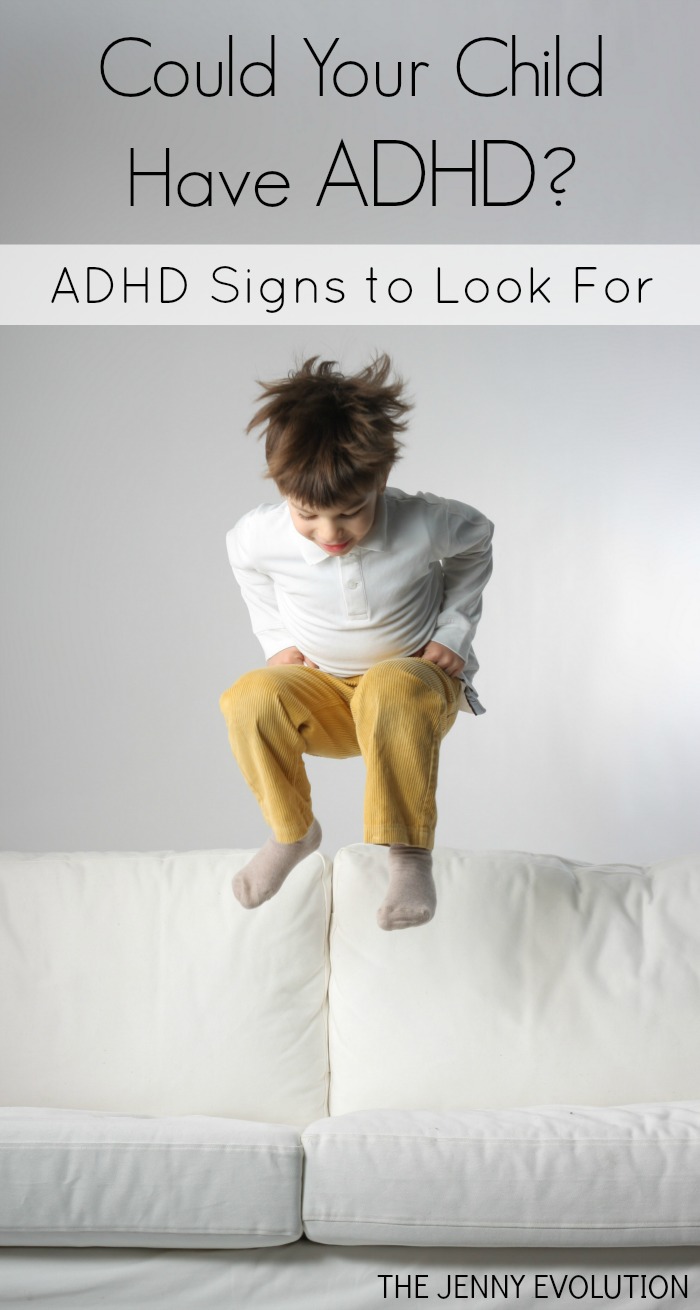
Chances are, some people who think they know the symptoms of ADHD may be mistaken while others refuse even to acknowledge the disorder.
Here are some tips for when you should be concerned about the possibility that you or someone you love has ADHD.
Then it’s time to see your doctor, or a doctor who specializes in ADHD.
When my son Vman was a toddler, he just seemed to be bouncing off of the walls all of the time.
He just couldn’t sit still for more than 15 minutes or keep his attention focused on something longer than that time… even when he was excited about it.
Vman also has Sensory Processing Disorder (SPD), which added to the difficulty of figuring out what he was managing.
As a kid who was a seeker when it came to physical activity, we just couldn’t figure out if he had a combo of SPD and ADHD or not.
Wondering if your child has SPD or ADHD? Read what the difference is between ADHD and Sensory Processing Disorder.
For us, one of the key behavioral issues he faced was he was obviously not in control of just how out of control he was.
We also had to wait until he was a little bit older to have him officially diagnosed.
One of the tricks with ADHD is some of the behaviors can be considered typical for toddlers.
It’s not until children are older and should have the internal systems to control themselves and focus that the issues become apparent.
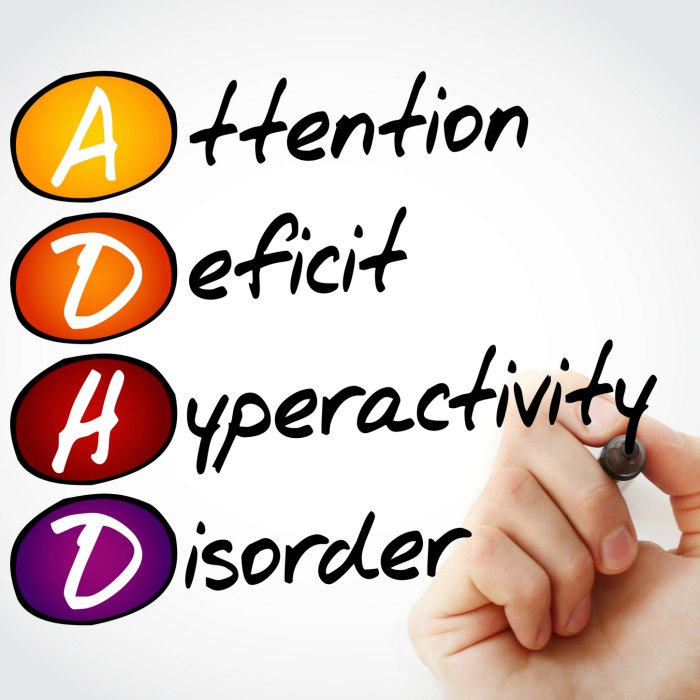
What are the Signs of ADHD in Children?
Here is a brief list of symptoms in children that can help you see if your child is showing the signs of ADHD.
I should also note that I’m calling ADD and ADHD one in the same.
It’s becoming more common to use the term ADHD as an overarching description.
That doesn’t mean that every child has hyperactivity but that it a can be a component.
According to experts, most signs and symptoms of ADHD in children appear before the age of seven.
Taking Charge of ADHD: The Complete, Authoritative Guide for Parents What Your ADHD Child Wishes You Knew: Working Together to Empower Kids for Success in School and Life
What Your ADHD Child Wishes You Knew: Working Together to Empower Kids for Success in School and Life Parenting ADHD Now!: Easy Intervention Strategies to Empower Kids with ADHD
Parenting ADHD Now!: Easy Intervention Strategies to Empower Kids with ADHD Mindful Parenting for ADHD: A Guide to Cultivating Calm, Reducing Stress, and Helping Children Thrive
Mindful Parenting for ADHD: A Guide to Cultivating Calm, Reducing Stress, and Helping Children Thrive
It’s a good idea to distinguish between “normal childhood behavior” and ADHD, which is something a qualified health professional can help you with.
Here are some of the signs of this disorder in children:
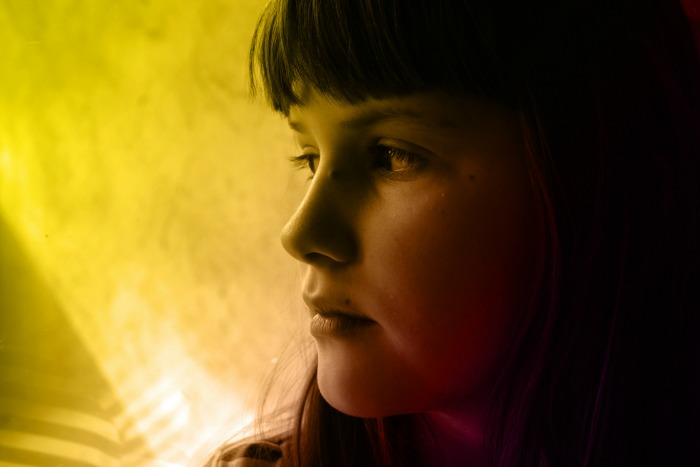
Can’t focus
A child with ADHD does not usually have simply a child-like attention span.
A child with ADHD usually has trouble concentrating on anything at all, no matter how interested he or she is in the subject or topic.
It may be ADHD if your child simply can’t concentrate on anything, especially something detailed.
When Vman was a toddler, he loved trains.
But unlike a lot of toddlers, he couldn’t just play with a simple set and keep himself occupied.
As part of our own survival, my husband and I would spend the weekends with Vman building elaborate train sets that would literally take over the entire dining room or basement.
The Survival Guide for Kids with ADHD (Survival Guides for Kids) Learning To Slow Down & Pay Attention: A Book for Kids About ADHD
Learning To Slow Down & Pay Attention: A Book for Kids About ADHD Thriving with ADHD Workbook for Kids: 60 Fun Activities to Help Children Self-Regulate, Focus, and Succeed
Thriving with ADHD Workbook for Kids: 60 Fun Activities to Help Children Self-Regulate, Focus, and Succeed Smart but Scattered: The Revolutionary
Smart but Scattered: The Revolutionary
It was the only way to keep him engaged; otherwise, he would be off to something else even though he really did love playing with trains.
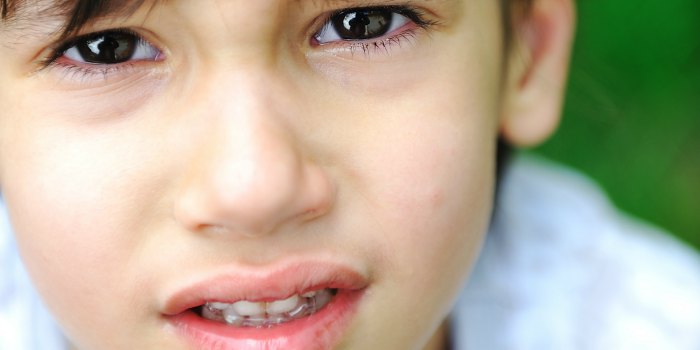
Staring off into space
This is a symptom of ADD that many people may not recognize, since many people associate these disorders with hyperactivity.
One of the reasons why there is a distinction made by some between ADD and ADHD is because hyperactivity is not necessarily a component of ADD.
A child who is a “dreamer” and seems detached from reality, staring out the window for long periods rather than paying attention, may have ADD.
Impulsive behavior
A child with ADHD may engage in impulsive behavior that he or she cannot control.
This certainly was the case with my Vman, as shown in one of our disastrous grocery store visits.
Kids with ADHD often have little sense of social boundaries and may interrupt or ask inappropriate questions.
Children with ADHD find it difficult to contain their emotions, too, and may act out in tantrums or angry outbursts.
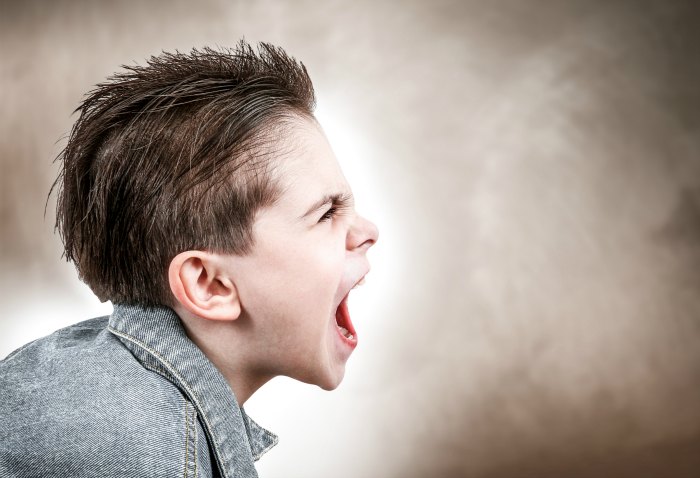
Disruption
Along the same lines to impulsive behavior, if a child cannot control him or herself with regard to disruption – even at the expense of social relationships – it may be ADHD.
A child with ADHD may be disruptive even if the activity itself involves movement and motion, such as physical education or playing on the playground.
If this behavior occurs in school and at home, that’s another signal that it may be ADHD.
Excessive talking
Also along the lines of impulsive behavior, children with ADHD tend to blurt out things at inappropriate times, and the things they blurt may be inappropriate.
Even if corrected, children with ADHD seem unable to control this impulse.
As an example, Vman’s teacher would say he would often interrupt her with the answer, even if she hadn’t called on him.
He also would talk during story time, commenting about what he thought of the story or about what was happening in the story.
He knew he shouldn’t be, but he just couldn’t help himself.

Hyperactivity
Kids are normally active and “wiggly,” but kids with ADHD are constantly in motion, often multi-tasking.
Fingers, legs, arms, and hands are always moving when an ADHD child is told to sit still. If not being asked to sit still, ADHD kids will bounce around from one thing to the next.
Chronic fidgeting also falls under the category of hyperactivity.
Yes, nearly all children fidget.
In children with ADHD, though, it may be a compulsive, repetitive behavior that is distracting and disruptive.
When a child feels like he or she has to fidget, it may be ADHD rather than just childish wiggles.
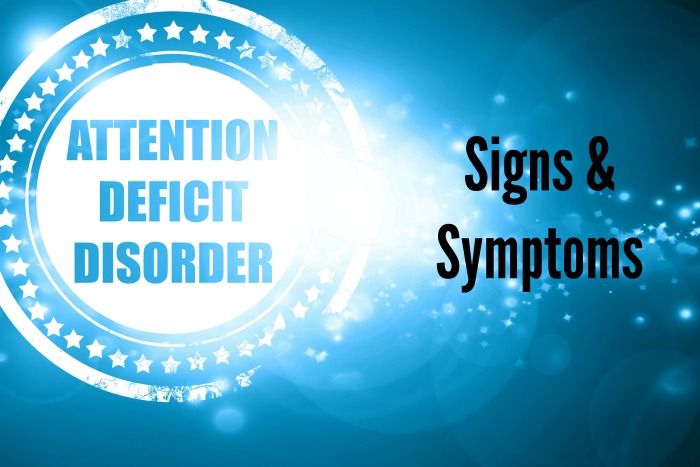
Signs and Symptoms of ADD/ADHD in Adults
Have you ever thought that your spouse (or even you) has ADHD?
There is a strong genetic component to ADHD.
And did you know that a child with ADHD is four times as likely to have had a relative who was also diagnosed with attention deficit disorder?
Here are some signs of ADHD in adults that may give you better insight:
Extreme disorganization
In this day and age, many adults juggle many roles, and it’s not unusual to feel or be disorganized.
In an adult with ADHD, however, it’s a chronic problem that may seriously inhibit their productivity.
They are often late, and they live among piles of clutter and papers, unable to get them in order.
Concentration
Adults with ADHD have trouble concentrating, too.
They may find their mind wandering off on tangents no matter how much they try to stay with one topic.
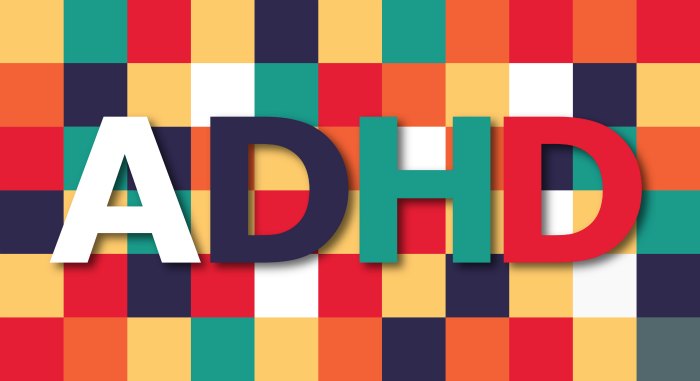
Poor time management
If an adult has ADHD, he may feel like he can never “get it together.”
Charts, notes and lists only add to the clutter, and the person often feels overwhelmed by organizing even small tasks.
Temper
Children aren’t the only ones who can have temper tantrums.
If an adult seems unable to control angry outbursts and finds him or herself unable to control emotions, then it may be ADHD, signaling an inability to control their impulses.
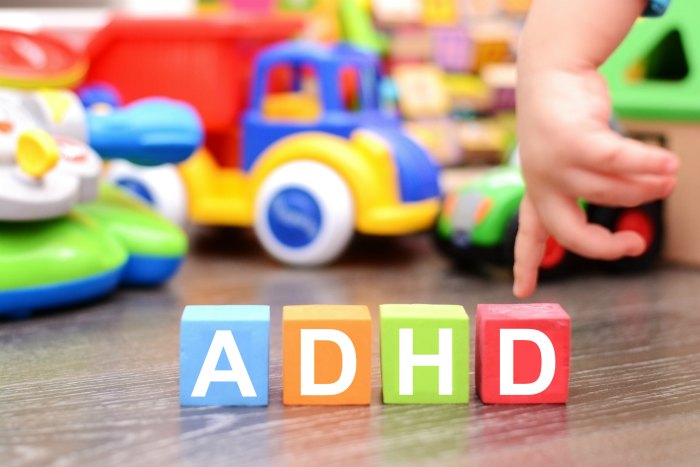
Signs of ADHD: Hyperfocus
Adults with ADHD may engage in what is known as hyperfocus – they may get completely consumed by a topic or subject of interest that they find fulfilling.
This is said to be a coping mechanism for blocking out distractions, which, for the adult with ADHD, the world is filled with.
Do you know a workaholic?
Adults with ADHD may be driven to work, work, work.
This may tie in with “hyperfocus,” a somewhat ironic symptom of ADHD in adults.
They may get so focused on a task or project that they completely lose track of the passage of time, the needs of their families and so forth.
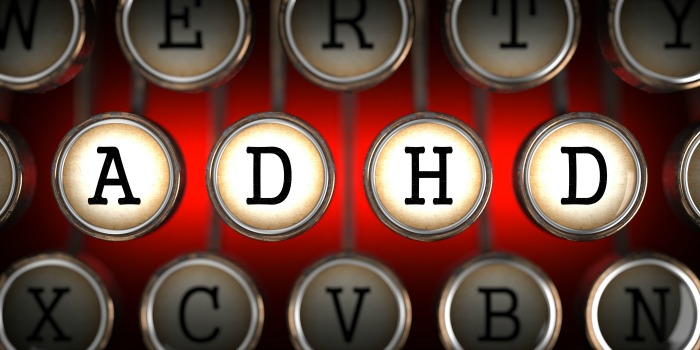
ADHD Resources
If any of these symptoms seems to describe you and/or your child, it’s important to seek out medical advice to get a proper diagnosis.
We took our son Vman to a neuropsychologist who was able to do a full diagnosis for him.
We found that while ADHD was creating some behavioral problems for him, it was also seriously inhibiting his ability to learn how to read.
Talk about a shocker!
To read more about parenting ADHD:
Taking Charge of ADHD: The Complete, Authoritative Guide for Parents What Your ADHD Child Wishes You Knew: Working Together to Empower Kids for Success in School and Life
What Your ADHD Child Wishes You Knew: Working Together to Empower Kids for Success in School and Life Mindful Parenting for ADHD: A Guide to Cultivating Calm, Reducing Stress, and Helping Children Thrive
Mindful Parenting for ADHD: A Guide to Cultivating Calm, Reducing Stress, and Helping Children Thrive Smart but Scattered: The Revolutionary
Smart but Scattered: The Revolutionary
Read more about special needs parenting and parenting an ADHD kiddo on Mommy Evolution!
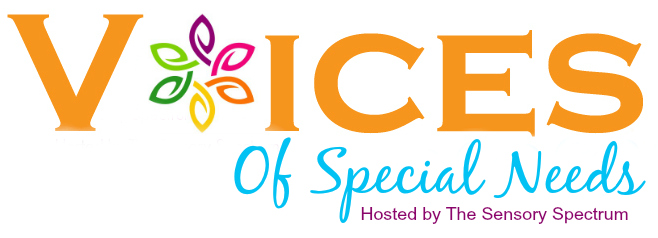
Welcome to Voices of Special Needs Blog Hop — a monthly gathering of posts from special needs bloggers hosted by The Sensory Spectrum and Mommy Evolution. Click on the links below to read stories from other bloggers about having a special needs kiddo — from Sensory Processing Disorder to ADHD, from Autism to Dyslexia!
Want to join in on next month’s Voices of Special Needs Hop? Click here!




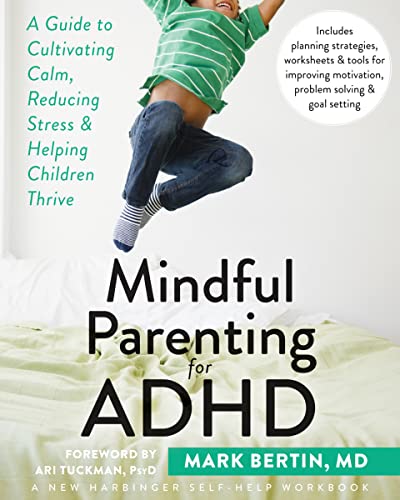





Great information! One of my favorite sites that I only discovered in the last year is called Understood dot org. It’s geared for parents of students with attention challenges and also learning challenges (my son has not only ADHD that medication doesn’t help, but also dyslexia- and SPD and anxiety). It’s a huge site, and one of my favorite parts of it is a simulation of what it’s like to have poor executive functions (hallmark of ADHD). It’s found in the Parent Toolkit, under Through Your Child’s Eyes. (Great for parents and teachers).
Another site I love that is geared for people with ADHD and those that love them is Dr. Edward (Ned) Hallowell’s site. It’s DrHallowell dot com. Tons of helpful info.
Yes! My personal favorite site dedicated for my ADHD kiddo is also Understood.org
Thanks for this list. I may need to take my son in to check him for ADD or ADHD. He is definitely off the wall active and can’t focus to save his life. On the bright side, I never have to worry about sending him outside to play. He can’t sit still anyway.
LOL.. I understand having a child who can’t sit still. Once we figured out my son has ADHD, we started to understand just how much it affected his school life and his ability to learn (particularly learning how to read).
Making sure you know the signs of ADHD is a good idea so you can look for those signs in your children. That way, you can get them the help they need. You can also start dealing with them differently, and realizing they can’t do certain things as easily as others.
I didn’t realize that temper is associated with ADHD. That is good to know since it would be good for every parent to know all of the signs of ADHD. That way, they can get their child properly taken care of if any of these signs manifest themselves. If they don’t get their child the care they need, it won’t be fair to you or the child.
My G was initially diagnosed with ADHD at around six years old, but that diagnosis was subsumed by his autism diagnosis a year later. I spent many years learning about autism and advocating for my son, but didn’t always make as much progress with it all as I would have hoped.
Eight or so years later, during a three-year eval, G was diagnosed with ADHD. The behaviors that result from ADHD are FAR more debilitating to G than his autism, which basically presents as his being quirky and openhearted. I really wish I had delved more into ADHD earlier in his life, because I think I could have helped him so much more.
I am not someone who thinks autism should be “cured,” but I do think proactively addressing his ADHD might have really made a difference in my G’s life, especially his academics…
Great post — very informative.
Thanks and love,
Full Spectrum Mama
This is a great topic and certainly helps others to truly understand ADHD and the impact it has on children and adults. I hope it helps people to become more sensitive and understanding to the needs of those affected by ADHD.
Simple, straightforward article that provides concrete and useful information.
It’s nice that you mentioned how a child with ADHD usually has trouble concentrating on anything at all, no matter how interested he or she is on the subject or topic. It seems my niece was diagnosed of having ADHD and the whole family wants to help her out with coping with it. I heard child ADHD counseling could help a lot, so I should probably tell my brother about it.